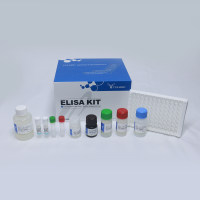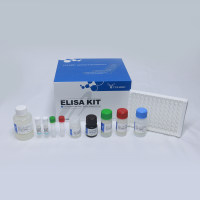Tumor Suppression Through Angiogenesis Inhibition
互联网
互联网
相关产品推荐

促销中大鼠肿瘤坏死因子α(TNF-α)/Rat TNF-α/tumor necrosis factor (TNF superfamily,member 2)/Tnf;Tnfa;Tnfsf2;Tumor necrosis factor;Cachectin;TNF-alpha;Tumor necrosis factor ligand superfamily member 2;TNF-a) [Cleaved into: Tumor necrosis factor;membrane for/TNF/ELISA试剂盒
¥3420¥3800

促销中小鼠肿瘤坏死因子α(TNF-α)酶联免疫试剂盒Mouse Tumor necrosis factor α,TNF-α ELISA KIT
¥3420¥3800

Tnfrsf17/Tnfrsf17蛋白Recombinant Human Tumor necrosis factor receptor superfamily member 17 (TNFRSF17) (Active)重组蛋白B-cell maturation protein (CD_antigen: CD269)蛋白
¥1368

Recombinant-Human-Transmembrane-protease-serine-3TMPRSS3Transmembrane protease serine 3 EC= 3.4.21.- Alternative name(s): Serine protease TADG-12 Tumor-associated differentially-expressed gene 12 protein
¥12810

Recombinant-Pig-Tumor-necrosis-factor-receptor-superfamily-member-6FASTumor necrosis factor receptor superfamily member 6 Alternative name(s): Apo-1 antigen Apoptosis-mediating surface antigen FAS FASLG receptor CD_antigen= CD95
¥11592

